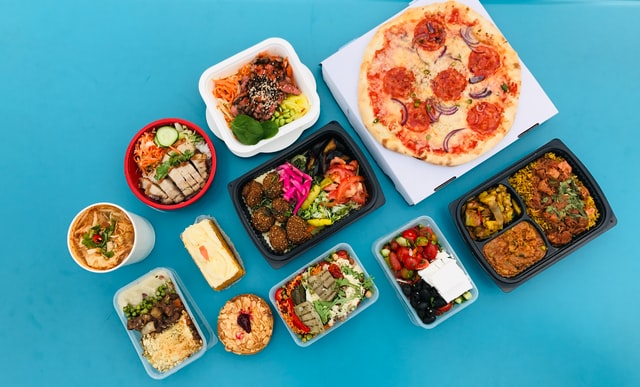If you’re anything like me, the idea of going to the grocery store is a major pain.
Shopping for food can take up an entire day and it can be really difficult to make good decisions when you’ve been standing in the same aisle for twenty minutes.
And then there are all those recipes that call for ingredients I just know I don’t have around.
But what if I told you that being prepared could save you time and money? What if I told you that meal planning could help avoid trips back into town because we forgot something?
Meal planning would also ensure we only buy things on our list so as not to waste any money or throw away spoiled food! It sounds pretty great, right? Well, let me tell you, meal planning has changed how I shop for groceries!
The benefits of meal planning
… are numerous. First of all, it takes out the guesswork. You can sit down and plan your meals for the week (or at least a few days) in advance.
Another huge benefit is that it helps you avoid last-minute trips to the grocery store for missing ingredients. I used to always find myself buying extra stuff just because they looked good or on sale.
Meal planning also reduces waste because you buy only what you need and won’t let any food go to waste! It can really help your budget as well since we know exactly what we need and how much of it.
Meal planning can be as simple or complex as you make it. Here are five tips to help you save time and money by meal planning:
Tip #1: Make a list of the items you’ll need for the week
The first thing you’ll want to do is sit down with a pen and paper (or your computer) and start making a list of what you think you will need for the week. Think about breakfast, lunch, dinner, snacks, drinks, dessert… anything that sounds like it would be included in your meals during that time.
When making a list, try to be as specific as you can. For example, if you’re planning on spaghetti for dinner tonight, write down “spaghetti noodles” instead of just “noodles.” Then check your pantry and refrigerator before going shopping so that you know everything you’ll need is in stock.
Tip #2: Look up recipes for the week
Next, go to another window on your computer or get your phone/tablet. Now you’ll want to search online for what you’d like to have for each meal so you can make sure you have everything needed.
If new foods are introduced, be sure to substitute them for similar things. For example, if you’re planning on having chicken for dinner but realize you only have beef… just go ahead and replace it! If you don’t mind the change, your meal plan won’t be affected.
Tip #3: Buy only what is needed
When going to the grocery store, only purchase the items (ingredients and/or necessary kitchen appliances) on your list. Try to make a habit of checking what you already have in your pantry and refrigerator before going shopping so that you know no items will be wasted.
Tip #4: Follow through with what’s planned
Once you’ve made your recipes and done your grocery shopping, you can sit down and relax! It’s time to cook and eat!
I know this is easier said than done, but sticking to the plan will be so worth it. If possible, try not to substitute ingredients or change plans at the last minute because these changes might impact the taste of your food and you’ll be disappointed with your meal.
Tip #5: Keep a journal after the first time you do this
At the end of each week, take a few minutes to write in a journal about what worked and what didn’t work. If there were some recipes that turned out great but others that just completely failed, write down why.
If there were some ingredients that spoiled before you were able to use them, write down which items this happened with so that it doesn’t happen again.
Bonus tip #1:
Choose recipes that use the same ingredients so that you aren’t buying too many items unnecessarily. For example, if you’re planning on having tacos for dinner tonight, choose a taco recipe that uses beef and tomatoes so you can buy just one pepper instead of two.
Also, consider buying ingredients that are in season to save money. You’ll be able to find them cheaper that way! Plus they will be taste better than ones transported from halfway across the world.
Did you know that grocery stores only order a certain number of items, and if they run out in one location (like your local store) they will not be restocked until that item is needed again? This is why we end up buying more than we need when we forget to check how much we already have!
Bonus tip #2:
Shop sales and coupons for reduced pricing on necessary foods. If there’s a sale on spaghetti sauce, buy an extra jar for the next week. If there’s a coupon for bread, buy two loaves instead of one.
Another great way to avoid wasting food is to use grocery store apps that help you keep track of what needs to be eaten in your home so it doesn’t spoil before you can eat it!
Conclusion
And there you have it! With these tips, meal planning will make your life easier and help you save time and money!




